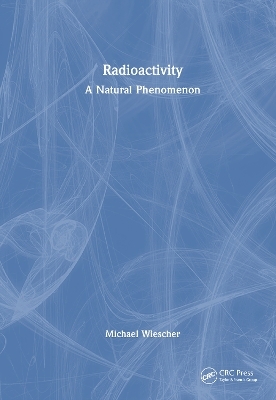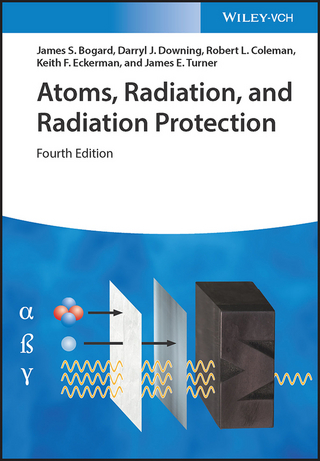
Radioactivity
CRC Press (Verlag)
978-1-032-56515-6 (ISBN)
It first explores the discovery and physics of the phenomenon of radioactivity, covering the discovery of radioactive decay and the historical development of the physics and applications of radioactivity through to 1940. Chapters then present descriptive summaries of the physics of the atom and the atomic nucleus, mass and energy conditions, the nature of isotopes, and the different decay patterns. Chapter three discusses decay laws and introduces natural origins of radioactivity as well as methods for producing radioactive isotopes through nuclear reaction processes in reactor and accelerator. The book then provides an introduction on dosimetry, radiation chemistry and impact of radiation on biological systems.
The second half of the book details natural radioactivity and the role of radioactivity in the formation of the planetary system and our Earth. The author describes how the inner radioactivity of our planet determines its dynamics and how it could have contributed to the origins of life. The volume concludes with an exploration of the external and internal radioactivity to which humans are exposed and their possible side effects.
This book will be of interest to non-science undergraduate and physics graduate students alike, as well as to interested lay-people looking for an introduction to radioactivity.
Key Features:
- Written in an accessible style, to be understood by readers without a formal scientific education
- Highly illustrated throughout
- Authored by an expert in the field, drawing from decades of experience in experimental nuclear physics
Michael Wiescher is the Freimann Professor of Physics at the University of Notre Dame. He received his Ph.D. at the University of Münster, Germany in 1980. After several years as postdoc and lecturer at Ohio State University, the University of Mainz, Germany, and Caltech, he accepted in 1986 a faculty position at the University of Notre Dame, where he developed a program in nuclear astrophysics using stable and radioactive beams. Dr. Wiescher’s research interests are in low-energy nuclear physics, with focus on nuclear astrophysics and nuclear applications. His research is being pursued mainly at the Notre Dame Nuclear Science Laboratory and at several other national and international research institutions. Between 2003 and 2015, Wiescher served as director of the Joint Institute for Nuclear Astrophysics of the University of Chicago, Michigan State University, and Notre Dame. For the following decade he was director of the Institute for Structure and Nuclear Astrophysics at Notre Dame. He has published approximately 500 scientific and review papers and has served on the organizing and advisory committees of more than 100 national and international workshops and conferences. Dr. Wiescher is a Fellow of the American Physical Society and the American Association of the Advancement of Science. He is also an elected member of the Academia Europaea. In 2003, he was awarded the Hans Bethe Prize in Nuclear Physics and Astrophysics of the American Physical Society, and in 2018 he received the Laboratory Astrophysics Award of the American Astronomical Society. In 2021, Wiescher received the Wolfson fellowship of the British Royal Society and in 2023, he was selected as EMMI visiting professor at the Helmholtzzentrum für Schwerionenforschung in Germany.
Chapter 1: Discovery and Interpretation. Chapter 2: The Natural Phenomenon of Radioactivity. Chapter 3: The Decay Laws. Chapter 4: Dosimetry and Biology. Chapter 5: The Radioactive Universe. Chapter 6: Our Radioactive Planet. Chapter 7: Radioactive Man. Chapter 8: Radioactivity in Low Doses. Chapter 9: Summary and Outlook. Index.
| Erscheinungsdatum | 03.12.2024 |
|---|---|
| Zusatzinfo | 9 Tables, black and white; 60 Line drawings, color; 9 Line drawings, black and white; 69 Halftones, color; 9 Halftones, black and white; 129 Illustrations, color; 18 Illustrations, black and white |
| Verlagsort | London |
| Sprache | englisch |
| Maße | 178 x 254 mm |
| Gewicht | 616 g |
| Themenwelt | Naturwissenschaften ► Physik / Astronomie ► Angewandte Physik |
| Naturwissenschaften ► Physik / Astronomie ► Atom- / Kern- / Molekularphysik | |
| Technik ► Elektrotechnik / Energietechnik | |
| ISBN-10 | 1-032-56515-2 / 1032565152 |
| ISBN-13 | 978-1-032-56515-6 / 9781032565156 |
| Zustand | Neuware |
| Informationen gemäß Produktsicherheitsverordnung (GPSR) | |
| Haben Sie eine Frage zum Produkt? |
aus dem Bereich


